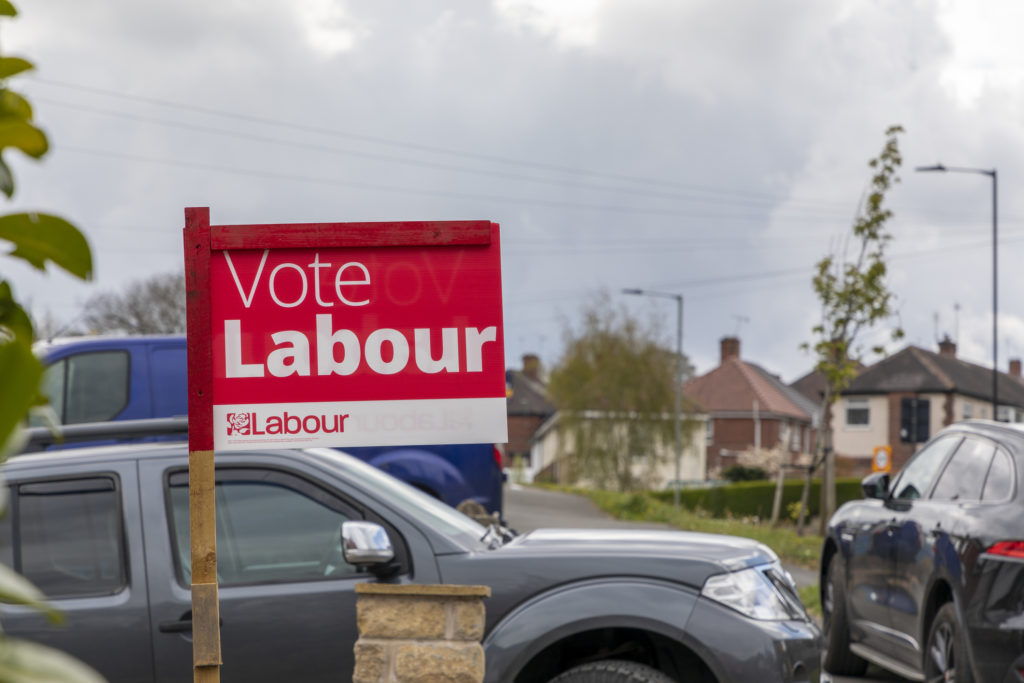The upcoming general election in the United Kingdom presents a pivotal moment for the nation, a chance to restore stability, integrity, and prosperity under the leadership of Sir Keir Starmer and the Labour Party. Prime Minister Rishi Sunak’s (Conservative) call for the election comes at a time when the country is grappling with the aftermath of numerous challenges and scandals that have plagued the Conservative government. The importance of a Labour victory cannot be overstated, as it offers a path to rejuvenate the UK and steer it towards a brighter future.

Under the Conservative Party, the UK has witnessed a series of crises that have undermined public confidence and eroded the nation’s standing on the global stage. The government’s handling of the COVID-19 pandemic resulted in a tragic loss of life and highlighted severe deficiencies in crisis management and public health infrastructure. The economic fallout from the pandemic, coupled with inconsistent policy decisions and frequent leadership changes, has further exacerbated the situation, leaving the country and economy in a precarious state.
The Labour Party, under Sir Keir Starmer, promises a comprehensive and coherent strategy to address these challenges. Starmer’s leadership is characterised by a commitment to transparency, accountability, and social justice, principles that are sorely needed to restore public trust and drive meaningful change. His legal background and experience as the former Director of Public Prosecutions equip him with the skills to navigate the complex political landscape and implement policies that benefit all citizens.
One of the most pressing issues facing the UK is the immigration crisis, particularly the record numbers of illegal crossings across the Channel. The Conservative government’s response, including the controversial and costly Rwanda scheme, has been widely criticised as ineffective and inhumane. Labour offers a more balanced approach, focusing on international cooperation and humane treatment of refugees while ensuring robust border security through a new border control team battling the crime head-on. This strategy aims to address the root causes of migration and provide sustainable solutions that respect human dignity.

Economic recovery is another critical area where Labour’s policies can make a significant difference. The Conservative tenure has seen economic mismanagement, with policies that have often favoured the wealthy at the expense of the wider population. Labour’s economic plan prioritises investment in public services, infrastructure, and green technology, aiming to create jobs, stimulate growth, and ensure a fairer distribution of wealth. By fostering innovation and supporting small businesses, Labour seeks to revitalise the economy and position the UK as a leader in sustainable development.
The frequent changes in prime ministerial leadership and the various scandals associated with the Conservative Party have tarnished the UK’s political landscape. From allegations of sleaze to questionable financial dealings, these issues have eroded public trust in government institutions. Sir Keir Starmer’s vision includes rigorous ethical standards and a commitment to restoring integrity in public office, which is crucial for rebuilding confidence in the political system.
The upcoming general election represents a crucial opportunity for the UK to change course and embrace a future defined by stability, fairness, and progress. A victory for Labour and Sir Keir Starmer would signify a commitment to addressing the deep-seated issues that have plagued the nation in recent years. By prioritising public health, economic equity, humane immigration policies, and ethical governance, Labour can drive the UK back to greatness and ensure a brighter future for all its citizens.
The significance of this election extends beyond immediate policy changes; it is about redefining the UK’s values and direction in the face of global challenges. Sir Keir Starmer’s leadership embodies a pragmatic and empathetic approach that resonates with a wide spectrum of voters disillusioned by the failures of the Conservative government. His ability to unite different factions within Labour and his readiness to engage in constructive dialogue with various stakeholders signal a promising shift towards a more inclusive and effective governance model.
One of the most striking contrasts between the Conservative government and Labour’s vision is their approach to public services. Over the years, austerity measures and underfunding have severely impacted the NHS, education, and social services. The pandemic starkly revealed these weaknesses, with hospitals overwhelmed and schools struggling to adapt. Labour’s commitment to adequately funding and reforming these essential services aims to ensure that they are resilient, accessible, and capable of meeting future challenges. This is not just about financial investment but also about valuing and supporting the workforce that sustains these services, ensuring that they have the resources and conditions needed to thrive.
The issue of Brexit, while no longer dominating headlines, still casts a long shadow over the UK’s economic and political landscape. The Conservative approach has often been characterised by a hard-line stance that alienates key partners and creates uncertainty for businesses and citizens alike. Labour under Starmer advocates for a more pragmatic relationship with the European Union, focusing on rebuilding diplomatic and economic ties that can foster trade, security cooperation, and shared prosperity. This approach seeks to mitigate the adverse impacts of Brexit while respecting the democratic decision of the referendum.
Environmental policy is another area where Labour offers a transformative agenda. The urgency of the climate crisis demands bold action, and Labour’s Green New Deal proposes significant investments in renewable energy, sustainable infrastructure, and environmental conservation. These initiatives aim to not only address climate change but also to create new industries and job opportunities, positioning the UK as a global leader in the green economy. This vision aligns economic growth with environmental responsibility, ensuring that future generations inherit a planet that is both livable and prosperous.
The social fabric of the UK has also been tested by increasing inequality and social division. The Conservative government’s policies have often exacerbated these divides, with many feeling left behind by economic and social changes. Labour’s commitment to social justice includes policies aimed at reducing inequality, such as progressive taxation, affordable housing initiatives, and support for disadvantaged communities. These measures are designed to create a more cohesive and equitable society where everyone has the opportunity to succeed.
Internationally, the UK’s standing has been affected by the erratic and often isolationist policies of the Conservative government. Labour’s foreign policy vision includes re-engaging with international institutions, promoting human rights, and contributing to global peace and security. By reaffirming the UK’s commitment to multilateralism and international cooperation, Labour seeks to restore the country’s reputation as a reliable and principled global actor.
The election on the 04th of July represents a critical juncture for the UK, offering a choice between continuing on a path marked by instability and regression or embracing a future of renewal and progress under Labour. Sir Keir Starmer’s leadership promises a return to competent, compassionate, and visionary governance, capable of addressing the complex challenges of our time. The importance of this election cannot be overstated; it is a moment to reclaim the UK’s potential and set a course towards a more just, prosperous, and sustainable future.
Everyone needs a change and this change must come now. Change is what is needed, positive change without drama, and positive change for the better. That is why I will be voting Labour in the next general election.





